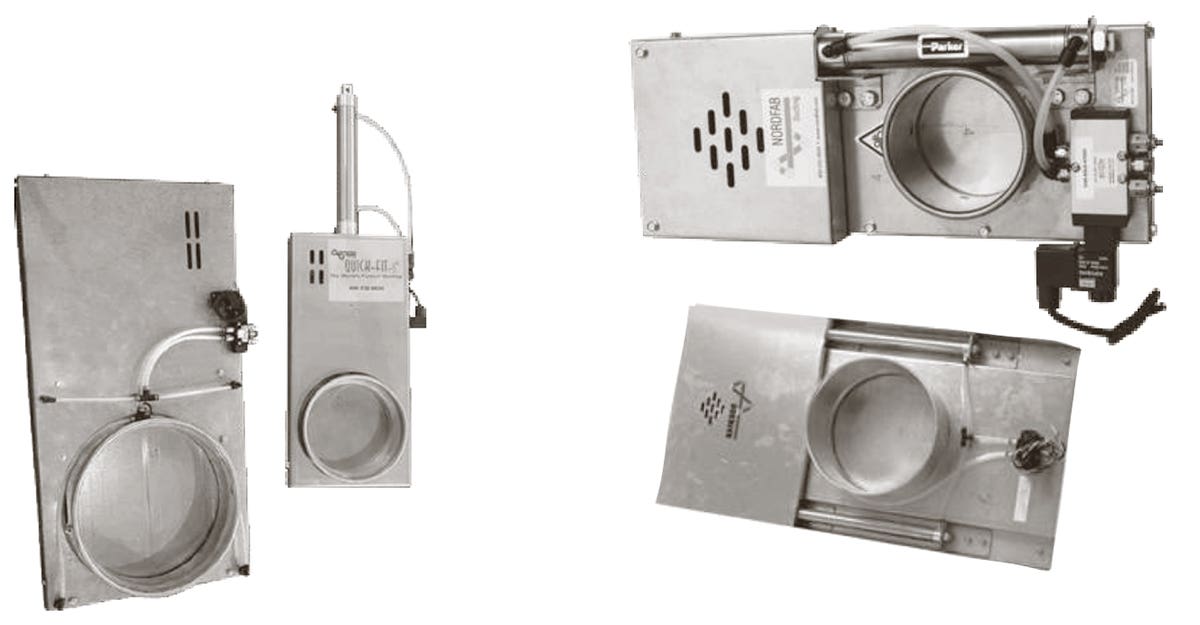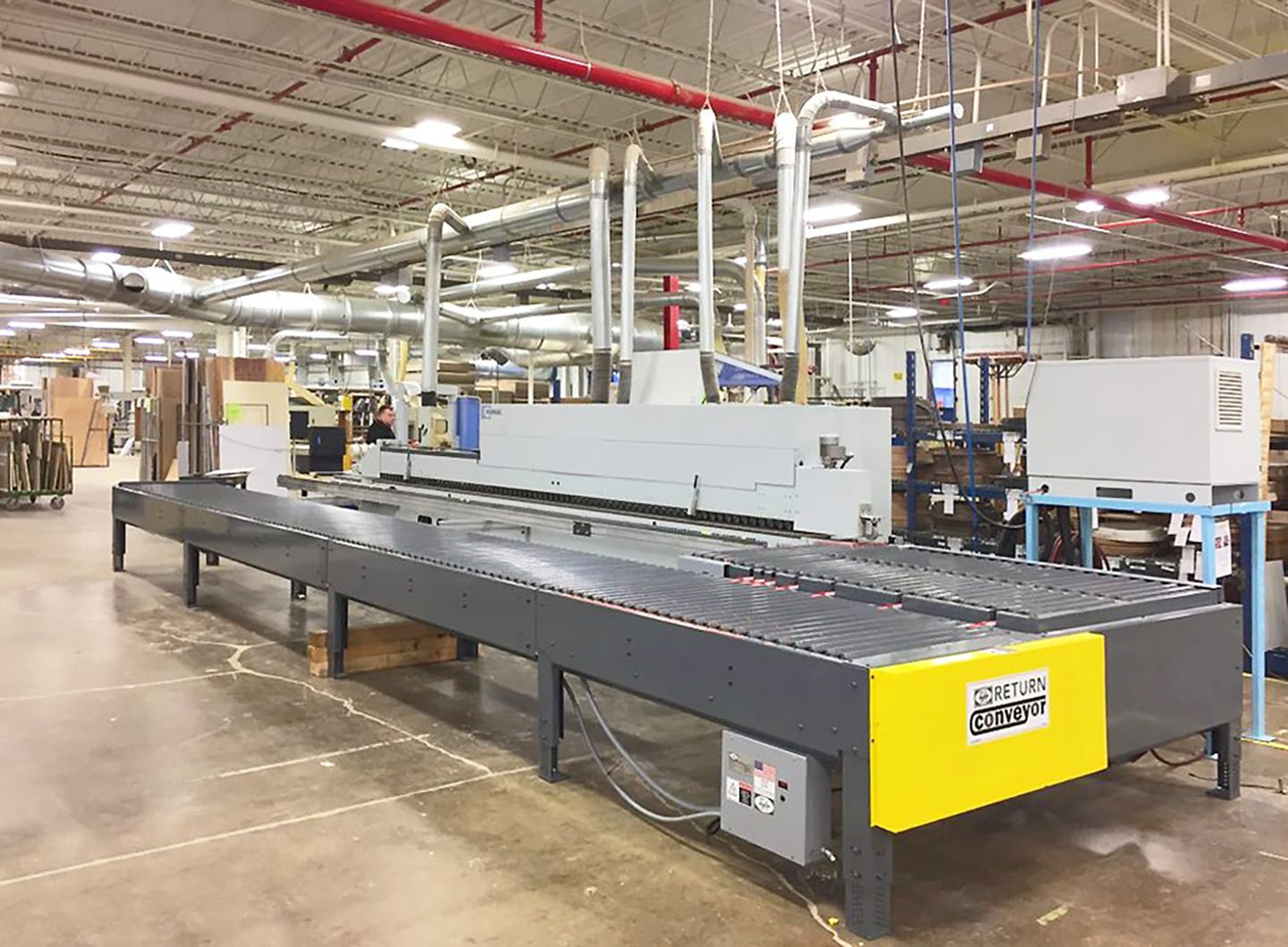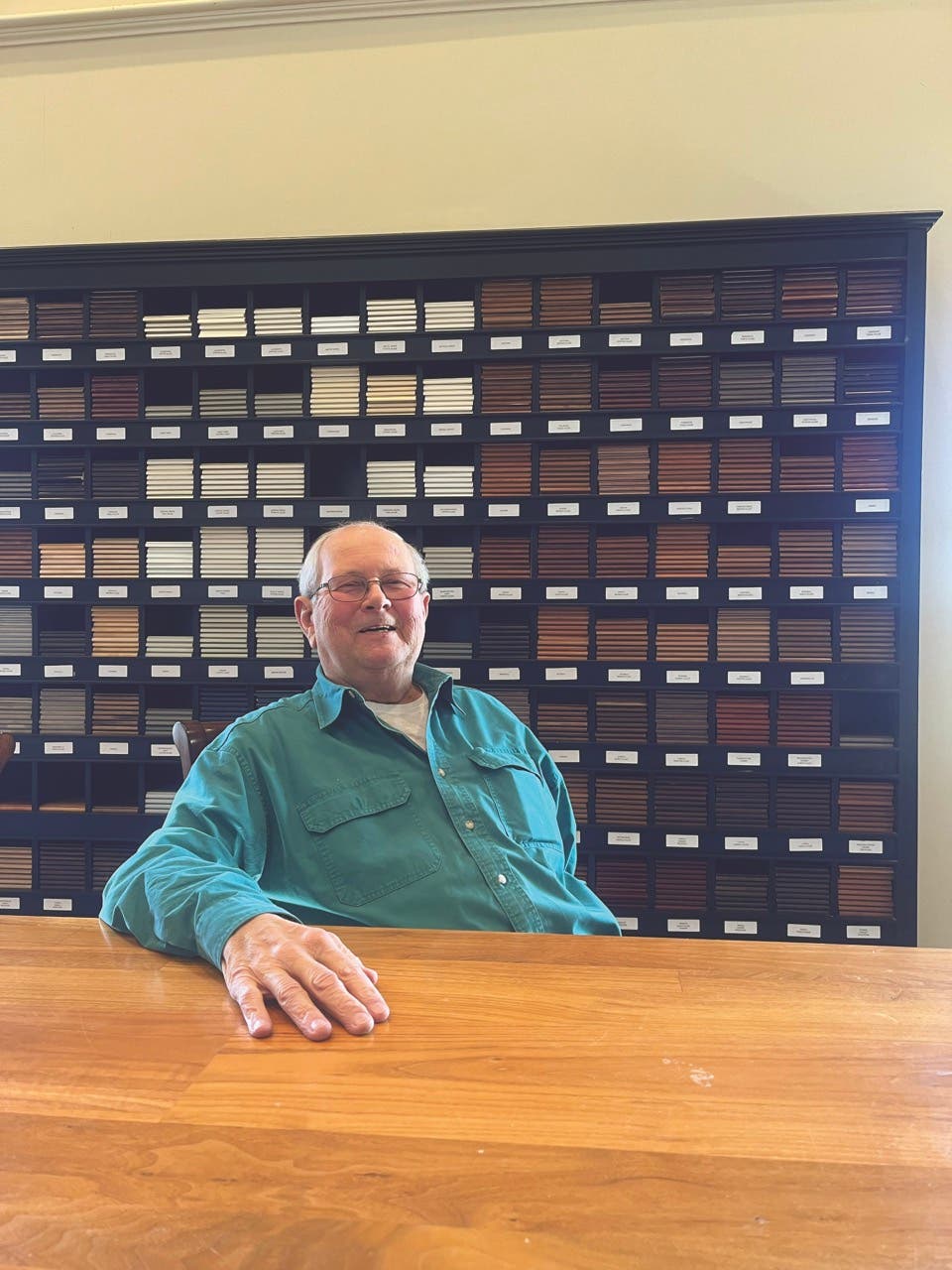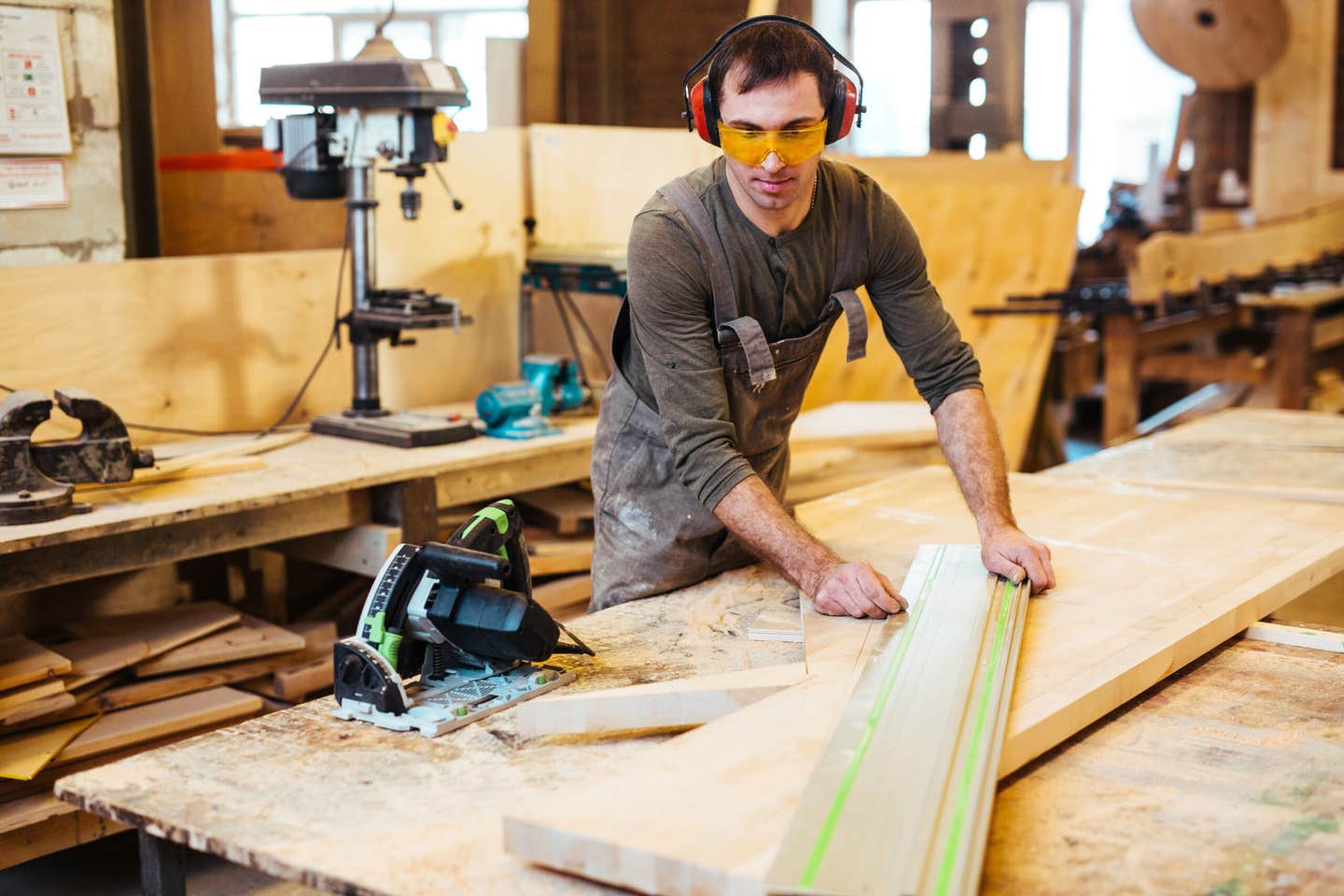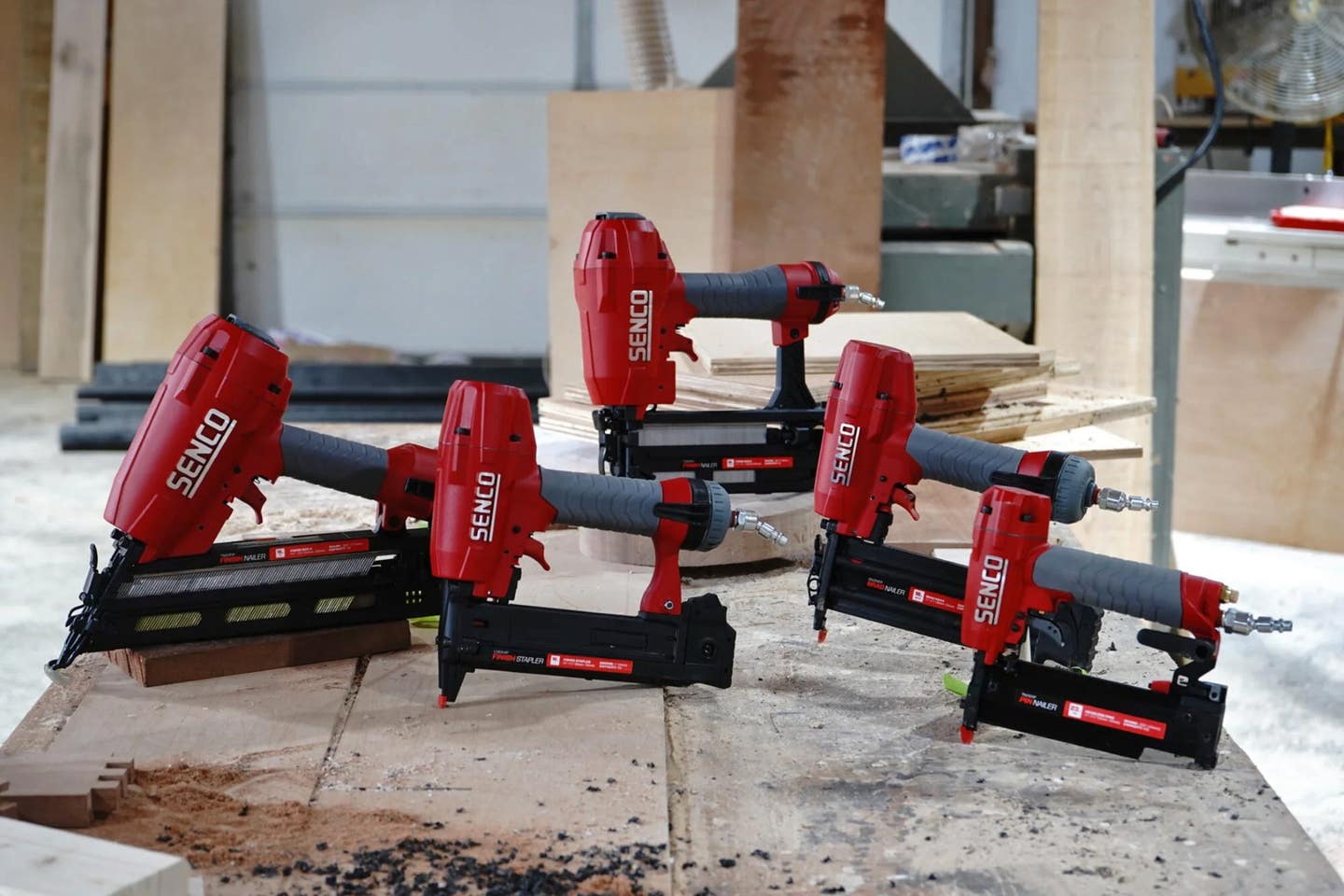Keep aiming high
Jutras Woodworking’s method is simple: invest in the best tools and provide good customer service to succeed The goal of Jutras Woodworking is to fulfill the custom cabinetry needs of…
Jutras Woodworking’s method is simple: invest in the best tools and provide good customer service to succeed
The goal of Jutras Woodworking is to fulfill the custom cabinetry needs of its clients and offer them an array of options no other shop can come close to. That mantra has kept the company thriving for nearly 30 years.
The business started with three brothers working out of their basement in Johnston, R.I., in 1980, and has since grown to more than 25 workers in a 35,000-sq.-ft., state-of-the art facility in Smithfield, R.I. Company president Paul Jutras says the business initially grew from commissions in the residential sector, but expanded after receiving regular requests for cabinetry and millwork jobs in hospitals, universities and other corporate settings. In addition, the shop has found a niche supplying yacht interiors to the local boatbuilding industry.
The shop features a plethora of high-tech and automated machinery (see sidebar), including an SCM Routech CNC router. Jutras says the shop began seriously investing in the sophisticated machinery as it began to regularly take on high-end commissions.
“I think high-end machinery keeps good men around. It’s a lot more fun to work on machinery that’s accurate and precise and quick to use. If you’re a cabinetmaker and you’ve been doing it for 20 years, it’s no fun to go to a saw that doesn’t cut square. You’re past that challenge of making the parts square.”
Good machinery also enables the shop to stand apart from its competition by allowing it to follow professional designs. The company requires all work to come from professional designers and architects. Jutras believes that if a shop is doing the design work, its work will always look the same.
“Shops that do their design work design around the machines they have and around their efficiencies. With our work, every job is completely different. We can build anything a designer wants.”
Family dedication
Jutras Woodworking has grown out of a family’s passion and commitment for the woodworking trade.
Jutras, who grew up in Johnston, says his father was a cabinetmaker and he and his brothers grew up building things. In 1980, Paul and his brother, Joe, started their own business. Early jobs were in home remodeling, but they graduated to an increased number of cabinet projects. The business was named Artistic Woodworking.
“There was a period where Joe would be in the field working on the remodeling and I’d be in the basement or the garage building the cabinets for the job. We did that for a long time before we bought a 5,000-sq.-ft. building in Providence around 1987. We added on to that and got it up to 15,000 square feet.”
The brothers saw more lucrative opportunities in new cabinetry construction, and eventually weaned off the remodeling jobs. A few employees were hired, and another brother, Rick Jutras, joined the crew to help with installations. Paul took over managing the office, while Joe managed the shop. The brothers have held their positions ever since, but the scope of the company’s projects have changed through the years.
“Ten years ago, we were probably 60 percent commercial, 30 percent residential and 10 percent marine. Now, we are probably 70 percent residential, 20 percent commercial and 10 percent marine.”
All-pro approach
Jutras Woodworking works directly with architects and designers. If a homeowner contacts the company directly, Jutras requires a professionally prepared drawing. If there is no professional involved with the design process, the client is referred to a designer.
“When we started, we worked directly with the homeowner — we did whatever it took. But at some point, as the business got larger and we were doing the remodeling work, we realized we were competing with the contractors and architects that were giving us work and that wasn’t good. So, to avoid conflicts like that, we don’t do the remodeling and design work anymore.”
Jutras says his decision to work only with professional plans relates to his tremendous amount of respect for design professionals.
“The best money people spend on a job is with their designer, it really is. If they’re avoiding the design process, they’re not spending their money wisely.”
After receiving the formal plans, the engineering department of Jutras Woodworking begins its shop drawing process.
“We make sure that when you open up the drawer on your cabinet that it doesn’t hit the door on your refrigerator, and other little problems like that. We’re really good at that and good at maximizing space. You can waste a lot of space by not building things properly, and when you’re buying a kitchen, in addition to purchasing a beautiful product, you’re buying space, you’re buying a place to put your stuff.”
Sometimes the designs are very detailed, but other times the plans are more conceptual, lacking the detailed information required to fabricate the job. That’s why Jutras Woodworking field-measures each job as part of its engineering process.
Armed with the original design drawings and field dimensions, Jutras engineers then create their own set of AutoCAD drawings for every job. This process often includes an extensive amount of interaction with clients to nail down their wants and needs. Clients and designers are often invited to the shop to use the showroom and other resources to finalize details such as cabinet and door styles, drawer configurations, and hardware and finish options. The payoff for all of this upfront work is clearly defined expectations and fewer downstream issues.
Jutras Woodworking averages about 300 contracted jobs per year, which range from a $1,000 piece of furniture to a $1 million home package or office interior.
The vast majority of Jutras’ clientele is within a 50-mile radius of the shop. But in the short perimeters of the Ocean State, that distance covers a pretty good range, including the high-end areas of Newport and Boston. The company has completed many jobs in other geographic areas, which stemmed from its in-state client network. Repeat business accounts for about 90 percent of the shop’s work.
“We’ve done work in parts of Florida, Manhattan and San Diego, but those jobs are almost always the result of a local owner, or client of a local designer, that either moved or had a summer or winter house in one of those areas.”
Top-notch shop
The Jutras brothers purchased their current shop — a spacious, one-story, 35,000-sq.-ft. warehouse — about 10 years ago. There’s ample space to mock up several kitchens and built-ins, a large finishing area, separate administrative and design offices, and a showroom.
“We are constantly striving to do things better, faster and more efficient in the shop and office. That often leads us to purchase new equipment or replace existing equipment with more modern versions. In every case, we look for some kind of justification, usually in time or money savings. What we find in most cases is that the initial justification is just a small percentage of the overall savings and benefits the new machinery brings. Once the guys get familiar with the new technology, they tend to apply it in ways we never initially intended. Overall, it has greatly increased our flexibility and capability.”
Jutras concedes that for a woodworker working out of a small shop, you can get along well with a table saw, jointer and thickness planer. But he says that if you want to start adding employees, and want to keep them by offering a living wage and competitive benefits, that’s only possible if you have the best machinery you can possibly buy.
“You’ve got to get a very high quality product through the shop in the fastest possible way, you need repeatability, you’re not just one guy in your basement. But here, you have one of 20 different guys on the shop floor and you want the same consistency every time, so I think digital machinery is very important. Every new piece of machinery we buy is digital machinery.”
Of the shop’s 25 employees, about 20 are full-time. There is enough room in the shop to add about 20 more employees, but the current economy has dimmed that prospect.
Jutras Woodworking employs several immediate and extended family members. Just about every person the shop hires comes recommended by a current employee. This method has allowed Jutras to assemble a talented and stable work force. Employees average 12 years of service with the company. Friday afternoon beers, a yearly golf outing and an occasional fishing trip help add to the shop-floor camaraderie.
“The next two or three years, I think, will be extremely and tryingly difficult for anyone in this business, and you’ll see a lot of people in the woodworking business go out of business. I think this is probably the third cycle we’ve seen like this.”
The engineering department takes care of estimating, shop drawings, project management and a large portion of the CNC programming. Two shop employees are trained to run the SCM Routech. The rest of the crew works in small groups, taking a project from rough milling through installation. The production model spreads out the more mundane tasks while allowing everyone to work on a wide variety of projects. Finishing is handled by a dedicated crew.
With its advanced machinery and skilled employees, the company has partnered with some of the finest boatbuilders in the world to create beautiful cabin interiors. Work on such projects follow different design guidelines and require skills and knowledge working with lightweight materials and epoxies.
Marketing and competition
Jutras Woodworking has always worked strictly on a word-of-mouth basis. The company’s current backlog runs a couple of months, with some larger-scaled jobs scheduled out a year or so in advance. With the current economic conditions, there is more concern about availability of future work, but it doesn’t change the owners’ morale and focus toward customer service, Jutras says.
“We always feel like we can’t afford to have a bad job and work really hard at keeping our clients happy.
Jutras says the closest thing to advertising the company has done was having a booth at the Fine Furnishings show in Providence in 2008.
“The show was a very positive experience. Not only did it increase our visibility locally, and introduced us to several potential clients, we also landed a couple of jobs as a direct result of the people we met there.”
Jutras beats competition from the other custom shops by sticking with its customer service mantra. The jobs are completed on time and for the price that was quoted.
“When we give people a price and delivery schedule we take those commitments seriously. Of course, midstream changes or additions may require adjustments, but we don’t revisit prices for anything inside the original agreed-upon scope of work.”
The daily grind
Jutras says his biggest challenge is dealing with those in the business who are not nearly as serious about deadlines as he is. When other contractors or homeowners experience delays, he has to store completed projects. Another difficult part of the job is turning away work based on upholding the company’s high standards.
“People will say I need to be in my house by Memorial Day, and we’ll turn down the job, and by Labor Day they’re still not in their house. That drives me nuts because it’s an opportunity lost for us. It’s a job that we could have had and we didn’t do because we were honest about the deadline and they gave us a short deadline.”
As for the future of the business, the company is focusing on being lean, flexible and responsive to its clients and the market.
“We have the space and capability for further expansion, and hope to do so under the right circumstances. With several members of the next generation working here, we are working towards being even stronger and better positioned when things turn around in the future.”
This article originally appeared in the July 2009 issue.



